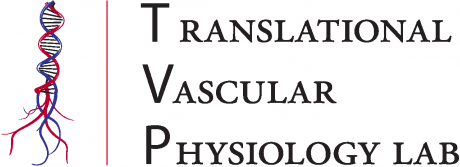STUDENTS
Samuel Bloom
Ph.D. Student
Department of Nutrition and Integrative Physiology
University of Utah
Salt Lake City, Utah
Office Address:
VA Med. Center, SLC
GRECC, Building 2, Room 2D15
500 Foothill Drive
Salt Lake City, UT 84148
Office: 801-582-1565 Ext 4331
Email: sambloom28@gmail.com
Research Interests:
My research is aimed at elucidating the mechanisms that regulate biological aging of the cardiovascular system at the cellular and molecular level. Specifically, I am interested in understanding the physiological consequences of chronic low-grade inflammation and oxidative stress, which ultimately leads to vascular dysfunction. These consequences include the induction of DNA damage response pathways and cellular senescence, as well as telomere dysfunction and changes in the shelterin complex. Furthermore, I am interested in the integrative nature of the cardiovascular system. This includes the relationship between vascular and metabolic dysfunction, as well as cognitive decline, all which of which are associated with aging. Coming from a background in exercise physiology, I am also interested in understanding how lifestyle factors such as exercise and diet are able to mitigate many of the physiological consequences of aging.
Publications
Ives SJ, Bloom S, Matias A, Morrow N, Martins N, Roh Y, Ebenstein D, O’Brien G, Escudero D, Brito K, Glickman L, Connelly S, Arciero PJ 2017 Effects of a combined protein and antioxidant supplement on recovery of muscle function and soreness following eccentric exercise. J Int Soc Sports Nutr. 14 (21). 2017
Md torikul islam
Ph.D. Student
Department of Nutrition and Integrative Physiology
University of Utah
Salt Lake City, Utah, USA
Office Address:
VA Med. Center, SLC
GRECC, Building 2, Room 2D15
500 Foothill Drive
Salt Lake City, UT 84148
Office: 801-582-1565 Ext 4331
Cell: 402-238-9111
Email: torikul.nfs.du@gmail.com
Research Interests:
My studies focus on the role of mammalian target of rapamycin (mTOR) signaling pathway in regulating the cross-talk between T cells and endothelial cells in response to vascular injury as well as age-related vascular dysfunction. With the world-wide increase in the average life span of people, age-related diseases like cardiovascular disease, stroke, myocardial infarction, Alzheimer’s disease, and paralysis are becoming the key challenges for the future researchers as well as medical professionals. If you pay a close attention, you will be fascinated to know that all of the aforementioned life-threatening diseases initiate from vascular dysfunction! This observation reminds us of the saying from the 17th century English physician Thomas Sydenham that, “a man is as old as his arteries.” Along with vascular dysfunction, another key feature of aging is chronic low-grade inflammation that is regulated by our adaptive immunity. However, it is not very clear how our adaptive immunity, especially the T cells, are related to the vascular aging and dysfunction. Furthermore, mTOR is widely known as a regulator of our adaptive immunity but it is not known yet how the mTOR signaling pathway regulates the cross-talk between T cells and endothelial cells. So, my primary research goal is to understand the role of T cells in vascular aging as well as the role of the mTOR signaling pathway in this interplay. I hope my studies will shed light in finding a new therapeutic strategy for the aforementioned complications.
Publications:
1. Talukder, Mesbah Uddin, Md Mahbubul Alam, Md Ariful Islam, Gowranga Kumar Paul, Md Torikul Islam, and Farhana Akther. “Study on the Nutritional Status of the Street Children at Shabagh Area of Dhaka City.” International Journal of Nutrition and Food Sciences 4, no. 3 (2015): 240-245.
2. Farhana, JasminAra, Farhana Akther, Mesbah Uddin Talukder, Md Ariful Islam, Md Torikul Islam, and Md Aminul Haque Bhuyan. “Role of Mothers’ Nutritional Knowledge, Nutritional Factors on The School Performance.” International Journal of Public Health Science (IJPHS) 4, no. 1 (2015): 44-49.
Abstract:
1. Natarajan, Sathish Kumar, Taylor Bruett, Ezhumalai Muthukrishnan, Md Torikul Islam, and Justin L. Mott. “Saturated Free Fatty Acids Induce Trophoblast Lipoapoptosis.” The FASEB Journal 31, no. 1 Supplement (2017): 642-10.


